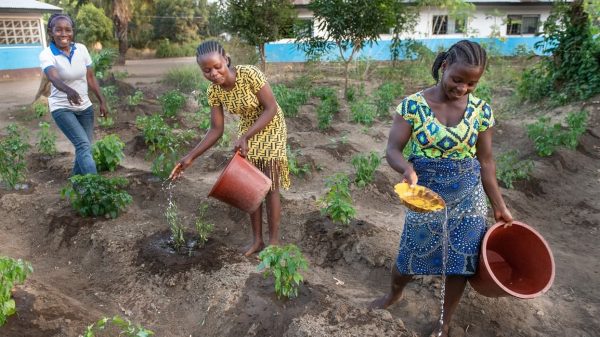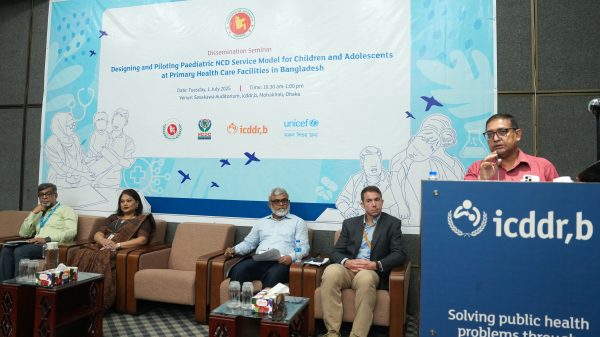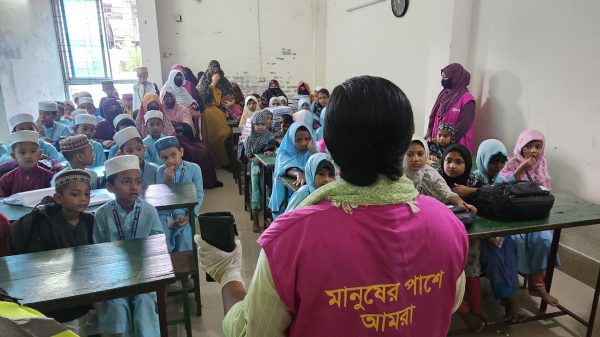Wolbachia Mosquitoes Offer Bangladesh a New Hope Against Dengue

- Update Time : Wednesday, May 7, 2025

Scientific Breakthrough: Locally Adapted “Good Mosquitoes” Developed for Dhaka
A major scientific development has brought renewed hope to Bangladesh in the fight against dengue. An international team of researchers has successfully developed a strain of Aedes aegypti mosquitoes infected with Wolbachia—a naturally occurring bacterium—which has been adapted to thrive in the local environment of Dhaka. These mosquitoes, referred to as “good mosquitoes,” are biologically equipped to block the spread of dengue and other mosquito-borne diseases like chikungunya and Zika.
The research was conducted by a collaborative team from the University of Queensland (Australia), QIMR Berghofer Medical Research Institute (QIMRB), icddr,b (Bangladesh), and the U.S. Centers for Disease Control and Prevention (CDC). The findings were recently published in the scientific journal Scientific Reports, part of the Nature group.
Dengue in Bangladesh: Escalating Threat, Limited Solutions
Bangladesh recorded over 1,700 dengue-related deaths and more than 321,000 infections in 2023, marking its deadliest outbreak. Factors like rapid urbanization, erratic rainfall, and rising temperatures have created ideal conditions for the Aedes aegypti mosquito. Meanwhile, traditional control methods using insecticides are failing due to increasing resistance, prompting scientists to search for sustainable alternatives such as the Wolbachia method.

What is Wolbachia and How Does It Work?
Wolbachia is a natural bacterium found in many insects such as butterflies and fruit flies—but not in Aedes aegypti mosquitoes. When introduced into these mosquitoes, Wolbachia blocks their ability to transmit viruses to humans. It poses no harm to humans, animals, or the environment and cannot be transmitted through bites or contact.
Two Strategies Using “Good Mosquitoes”
Researchers are applying Wolbachia through two primary strategies:
- Suppression Strategy: Only male Wolbachia-infected mosquitoes are released. When they mate with wild females, the resulting eggs do not hatch, thereby reducing mosquito populations.
- Replacement Strategy: Both male and female “good mosquitoes” are released. The Wolbachia bacterium spreads through the mosquito population over time, as infected females pass it on to their offspring. These offspring cannot transmit dengue, thus replacing the wild, virus-spreading mosquitoes.
Both strategies have demonstrated major success in other countries. For example, in northern Queensland, dengue cases have dropped by 96% over the past decade. Similar success has been reported in Brazil, Colombia, Indonesia, Malaysia, Singapore, and the USA—with mosquito populations reduced by up to 95% in suppression trials.

A New Strain for Dhaka: wAlbB2-Dhaka
To suit Dhaka’s hot and humid climate, researchers developed a new strain called wAlbB2-Dhaka. They began by crossbreeding Wolbachia-infected Queensland mosquitoes with wild Aedes aegypti from Dhaka. After several generations, the resulting mosquitoes were able to consistently pass Wolbachia to their offspring.
Tests showed that this strain reduced dengue virus transmission by 92.7% compared to regular mosquitoes. Additionally, laboratory tests indicated that the wAlbB2-Dhaka mosquitoes had similar survival rates, egg production, and hatching success compared to wild mosquitoes—making them suitable for real-world release.
Bangladesh Prepares for Field Trials
Dr. Mohammad Shafiul Alam of icddr,b emphasized public concerns about releasing mosquitoes, stating, “These are not genetically modified. They are safe ‘good mosquitoes’ with a natural bacterium that blocks disease.” He added that Wolbachia has already been used safely in multiple countries.
Lead researcher Hasan Mohammad Al-Amin said the study sets the foundation for field trials in Bangladesh but emphasized the need for careful implementation and planning.

Expanding Public Health Impact
Wolbachia-infected mosquitoes can also help control other viruses like Zika and chikungunya. To move forward, icddr,b has signed a Material Transfer Agreement (MTA) with QIMRB to import and use these “good mosquitoes” in Bangladesh for non-commercial purposes, paving the way for experimental releases and broader implementation.
Dr. Tahmeed Ahmed, Executive Director of icddr,b, stated:
“We’re ready to assist the government in further testing this promising strategy. Once field trials prove successful, wider introduction can be considered. In parallel, we are also advancing research into a dengue vaccine and hope to fast-track local trials for comprehensive dengue control.”
Conclusion: A Science-Based, Sustainable Path Forward
As mosquito-borne diseases continue to rise, these locally adapted Wolbachia-infected “good mosquitoes” could provide Bangladesh with a sustainable and effective solution. However, researchers caution that real-world implementation requires field testing and active community participation to ensure long-term success and public trust.
Original Study: Scientific Reports – Nature










Leave a Reply